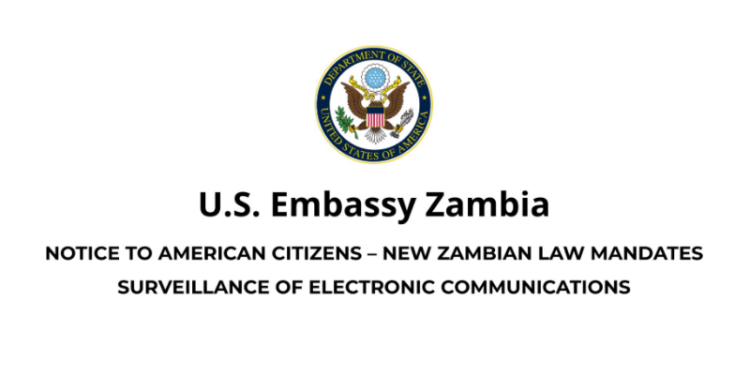The U. S. Embassy in Zambia has alerted American nationals regarding a recently enacted law that involves monitoring electronic communications in the country. This law, which was signed by President Hakainde Hichilema on April 8th, is known as the Cyber Security Act. It requires information and communication technology companies to capture all forms of communication, such as phone calls, emails, text messages, and streaming media, in order to detect what is termed “critical information.”
The definition of “critical information” is broad, indicating that many types of communications could fall under this surveillance. If any communication is deemed to contain critical information, the ICT companies must send it to the Zambian authorities. This requirement marks a notable change in how Zambia addresses issues of privacy and monitoring.
The U. S. Embassy has urged American citizens residing in or visiting Zambia to carefully consider how this law may impact their communications. They are advised to modify their activities in order to protect their privacy. As this law comes into effect, the Embassy plans to keep an eye on developments and will keep American citizens in Zambia updated with further guidance.
This new law is a major alteration in Zambia’s privacy regulations and reflects the government’s increasing emphasis on both security and cyber threats. Americans are encouraged to stay aware of how this law might affect them and to change their activities as necessary.









